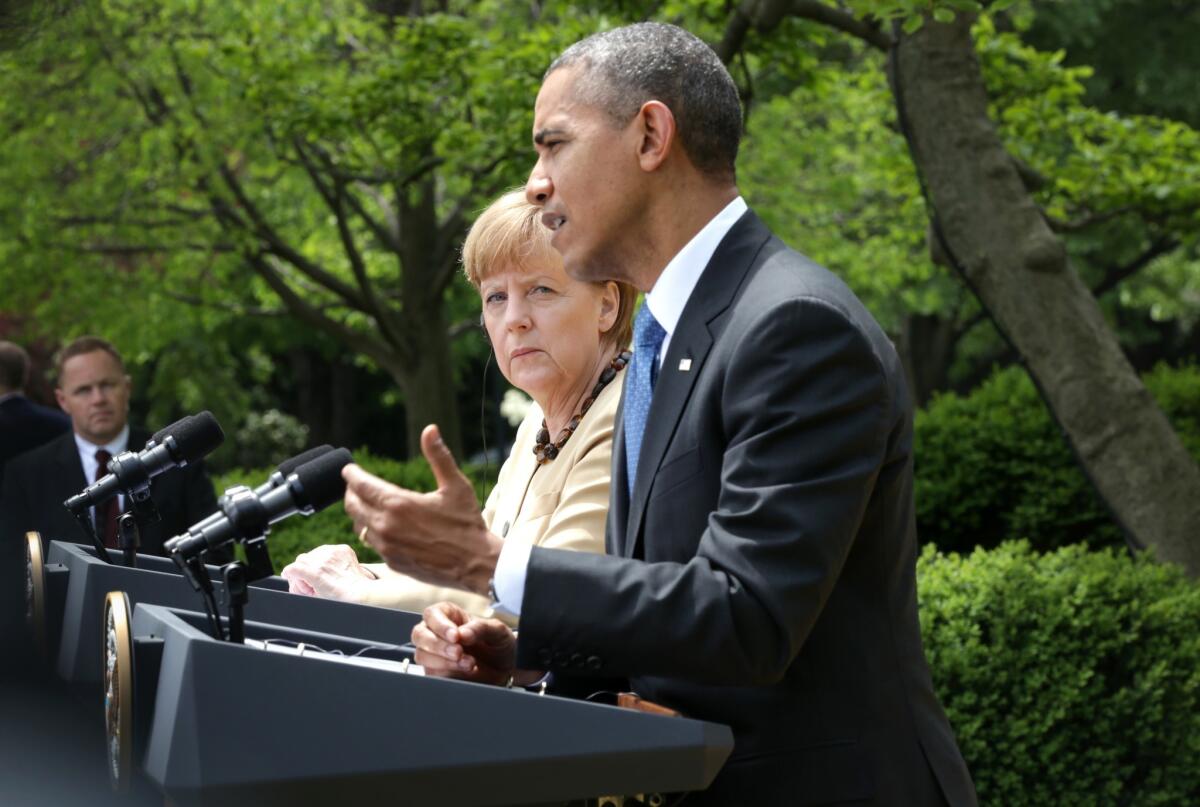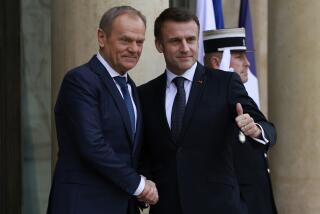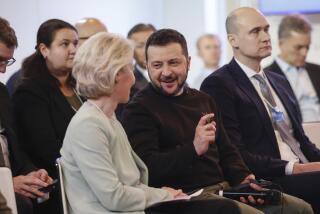Obama, Merkel threaten broader sanctions against Russia over Ukraine

President Obama and German Chancellor Angela Merkel on Friday ratcheted up the threat of economic backlash against Russia, saying they are preparing broader sanctions if Moscow continues to stoke violence in eastern Ukraine in the run-up to elections later this month.
“The Russian leadership must know that if it continues to destabilize eastern Ukraine and disrupt this month’s presidential election, we will move quickly on additional steps, including further sanctions that will impose greater costs,” Obama said during a joint news conference in the Rose Garden.
After weeks of threatening to impose sanctions on sectors of the Russian economy, Obama and Merkel appeared to be refining the trigger point for enacting the tougher penalties that could cause pain to Europe as well as Russia. In previous remarks, Obama had only specified that the sanctions would come if Russian President Vladimir Putin ordered troops into Ukraine.
The new red line comes as violence in eastern Ukraine has increased with the fledgling government in Kiev struggling to subdue pro-Russian separatists. Western powers say Moscow is behind the insurgents and has broken its promise to urge them to stand down.
Talk of the U.S. and European response to the continuing crisis dominated Merkel’s brief visit to Washington on Friday. The two leaders sought to present a united front against Russia, despite the open rift between the nations on another hot topic -- U.S. spying.
Revelations that U.S. intelligence agencies listened in on Merkel’s phone calls have caused sustained tensions between Berlin and Washington. Attempts to craft a new agreement outlining the rules of the road for spying between U.S. and Germany have so far failed.
Merkel raised the issue in the news conference, noting that the two sides had not yet reached a deal and that the matter “will require further discussion.”
Obama sought to reassure German citizens that the U.S. is not vacuuming up all of their phone conversations and email correspondence, saying, “Ordinary Germans are not subject to continual surveillance.” He also pushed back on reports that the U.S. had offered and then rescinded a “no-spy agreement” to the French, which has angered Germans who have sought similar assurances.
“We do not have a blanket no-spy agreement with any country, with any of our closest partners,” Obama said, adding that the United States was working with various allies to address concerns that have arisen after former National Security Agency contractor Edward Snowden leaked documents that disclosed the extent of U.S. spying.
The president also commented on a domestic controversy: the botched execution of a convicted murderer in Oklahoma. The incident has prompted a state investigation into death penalty procedures.
Obama, who supports capital punishment in some cases, said the Oklahoma execution raises “significant questions about how the death penalty is being applied” and said he had asked Atty. Gen. Eric H. Holder Jr. to produce a review of federal work on problems with the death penalty.
“I think we do have to, as a society, ask ourselves some difficult and profound questions around these issues,” Obama said.
More to Read
Start your day right
Sign up for Essential California for news, features and recommendations from the L.A. Times and beyond in your inbox six days a week.
You may occasionally receive promotional content from the Los Angeles Times.







